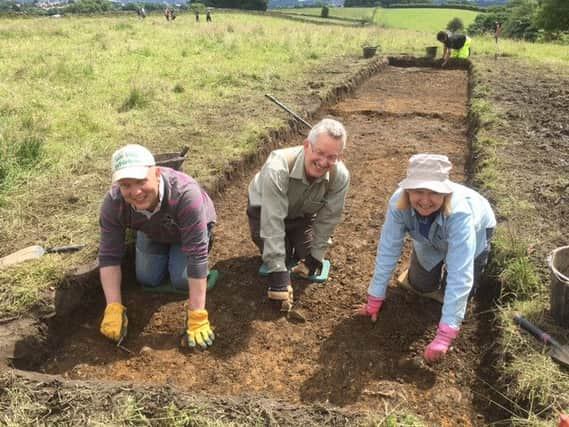Discovery of Roman signal box is '˜first evidence of forgotten frontier'


The site at Whirlow Hall Farm, was discovered during a geophysical survey by volunteers from the Time Travel archeology group and Archaeological Research Services (ARS) Ltd, who have been exploring the landscape to find evidence of the Roman frontier prior to the Roman invasion of northern England.
The signal station would have formed part of a system for communication along the line of what was then the northern frontier of the Roman Empire, between the Roman forts at Templeborough, under the modern Magna museum in Rotherham, and Brough.
Advertisement
Hide AdAdvertisement
Hide AdThe square-shaped enclosure is formed by two construction ditches which would have held timber uprights to create a timber stockade.
Within the interior there would typically be a timber tower for observation and signalling, although no evidence of this appears to have survived due to it being made of timber with only light foundations.
The managing director of ARS, Dr Clive Waddington, said “The discoveries at Whirlow provide some of the first evidence for this forgotten Roman frontier and will go a long way to understanding what happened when the Romans pushed north, how they did it and what the impact was on the local communities inhabiting these borderlands.
“This discovery shows that then as now, Sheffield and its hinterland was the gateway to the north.”